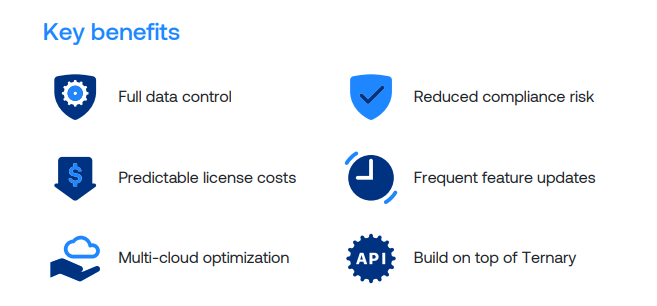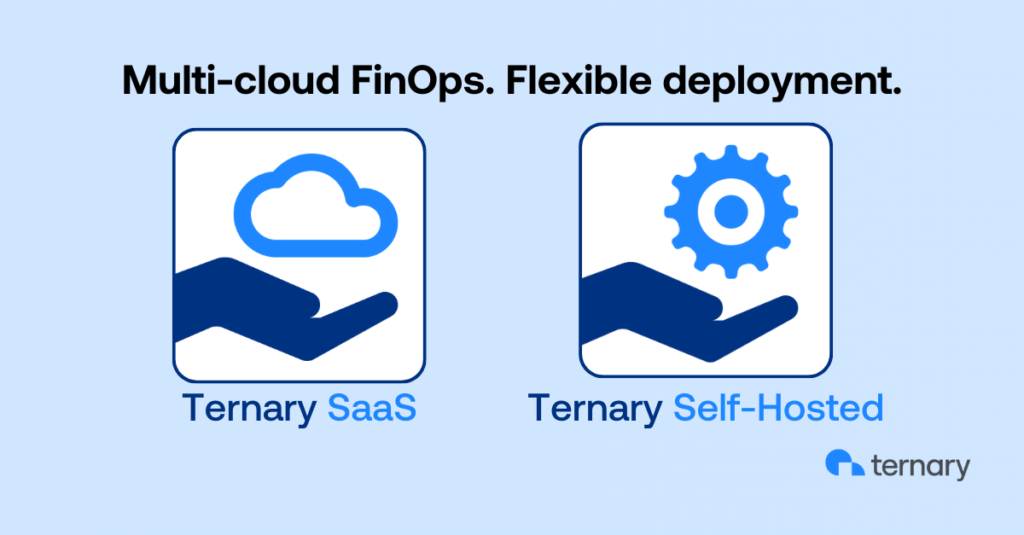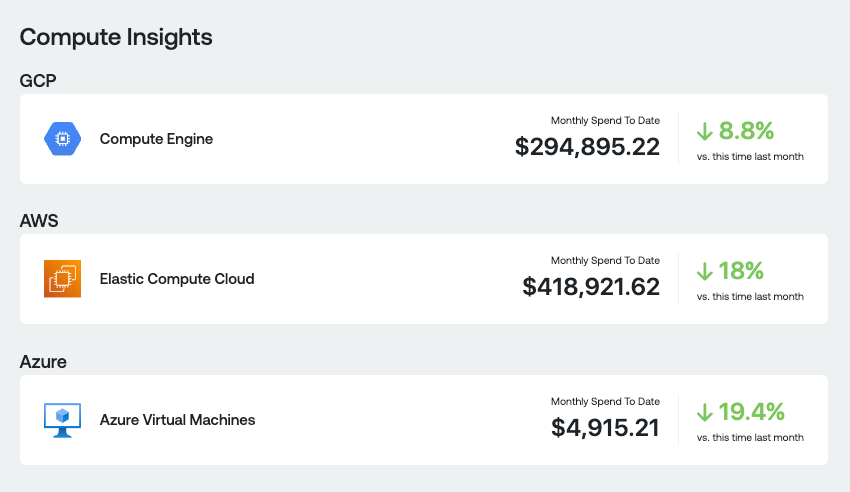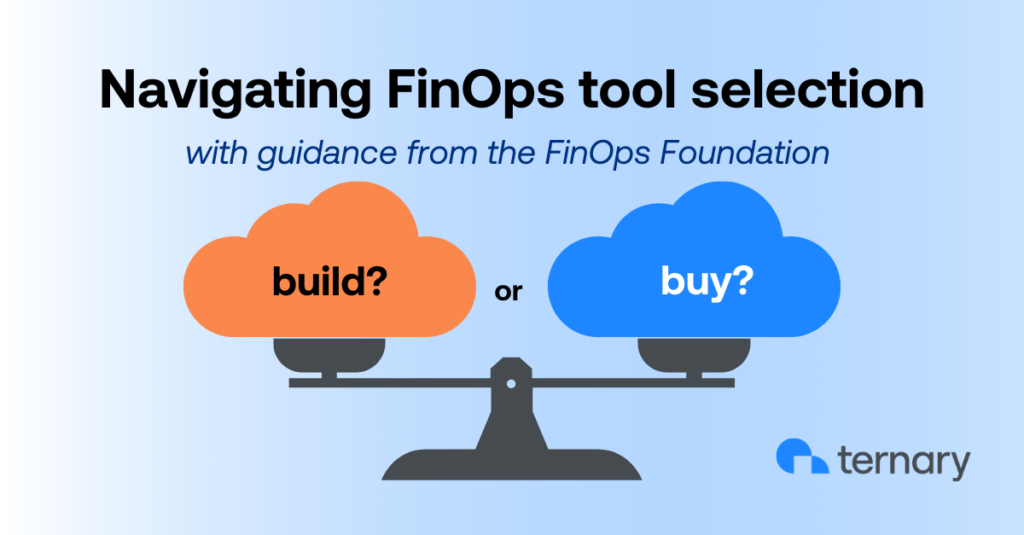Ternary gives you the flexibility to choose the deployment method that best meets your company’s standards and regulations. Ternary is available as both a SaaS platform and a self-hosted solution.
In this blog, we’ll compare the pros and cons of each deployment method.
The pros and cons of a SaaS platform
Software-as-a-Service (SaaS) is a deployment method and business model providing you access to a software application through a web browser. SaaS adoption has taken off in recent years as remote work has become the norm. According to the SaaS Academy, over 80% of businesses use at least one SaaS application in their operations. SaaS platforms have several benefits, such as:
- Time to value. A SaaS vendor is responsible for platform updates and maintenance. As a customer, you don’t need to perform any local installations or maintenance. You benefit from immediate access to the latest features.
- Accessibility. A SaaS platform can be accessed from any location or device with an internet connection. As a customer, you are not bound to a physical location and can access the platform from the device of your choice.
On the other hand, SaaS platforms have a few potential drawbacks, such as:
- Usage costs. Although SaaS platforms don’t incur costs for deployment or maintenance, they may not be cost-effective in certain use cases. SaaS platform pricing is often based on consumption; therefore, your vendor may charge you more for high usage.
- Potential security risks. With SaaS, you are sharing data with a third party. SaaS vendors lacking appropriate security controls may expose your company to data breaches or data loss.
The pros and cons of a self-hosted solution
A self-hosted solution requires you to run software on your own infrastructure, as opposed to relying on a third-party SaaS vendor. Despite the fact that SaaS adoption continues to rise, many companies prefer or are required to procure self-hosted solutions. Reasons for this include:
- Reduced security and compliance risk. With a self-hosted solution, you maintain full control over your data. You are responsible for the underlying infrastructure and the security and maintenance of the solution. This deployment method allows you to easily comply with applicable industry standards or regulations (e.g., PCI DSS, NIST, FedRAMP, etc.).
- Enhanced customization. A self-hosted solution can be more easily integrated with your existing, internal tools and applications. For companies that are pursuing a “buy then build” approach, this adaptability can be especially beneficial. Additionally, you may have the flexibility to tailor the front end or the back end of the platform to suit your needs.
While deploying a self-hosted platform has several benefits, it also has a few cons, such as:
- Ongoing maintenance. Maintaining a self-hosted platform and installing updates require investments of time and money, not to mention expertise. Unlike with SaaS, you and your team will need to have the skills and bandwidth to maintain self-hosted infrastructure.
- Limited scalability. A self-hosted platform may require investing in additional IT resources to keep pace with fluctuating demand. For example, it may be more difficult to accommodate a large volume of users, especially if they are geographically dispersed.
The flexibility to choose your deployment
Very few FinOps vendors provide both a SaaS platform and a self-hosted solution. Ternary allows you to choose the deployment method that’s right for your company’s standards and regulations.
Ternary Self-Hosted runs our industry-leading FinOps platform within your Google Cloud environment. Offering enhanced data privacy and cost control, Ternary Self-Hosted supports customers with billions of dollars in annual multi-cloud spend.
Ternary Self-Hosted enables organizations to:
- Prevent unauthorized transfer of sensitive data from their FinOps platform
- Meet industry-specific data security regulations and compliance standards
- Operate in regions other than where the Ternary SaaS platform is available

Learn more about Ternary Self-Hosted.




